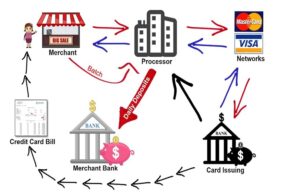
Singapore futures trading: best practices for success
Singapore futures trading is a form of investing that involves buying and selling financial futures contracts in the Singapore market. The process can be rewarding and risky, depending on the investor’s strategy and knowledge of the markets.
There are some practices to adhere to maximise success in Singapore futures trading. These include understanding the different types of futures contracts available, managing risk appropriately, practising patience with trades, taking advantage of sophisticated tools, building a diversified portfolio, studying technical indicators, balancing short-term and long-term strategies, researching potential brokers carefully and more.
By following these principles consistently over time, investors can optimise their chances of achieving long-term success with Singapore futures trading.
Types of futures contracts
The first step towards success in Singapore futures trading is understanding the different types of contracts available. Futures are agreements between two parties to buy or sell an asset at a predetermined price and time. The most common type of contract includes commodities, currencies, stocks, bonds, and indices. Investors can also choose from other derivatives, such as options and futures. With the proper knowledge and strategy, investors can make profitable trades with any of these instruments.
Management of risk
When investing in Singapore futures trading, it is essential to manage risk appropriately. This includes setting stop-loss orders to ensure traders only take on excessive losses if their investment turns out as expected. Additionally, investors should consider diversifying their portfolios by allocating capital across different asset classes and markets. This allows them to spread risk while potentially generating returns from multiple sources.
Practising patience with trades
Patience is vital when investing in Singapore futures trading. It is essential to avoid emotional decisions which could lead to losses if the market turns against a trade. Additionally, investors should not enter positions based on short-term news or events but instead, take the time to read through the fundamentals of an instrument before deciding whether it is suitable for their portfolio. Taking time off between trades can also help traders develop an objective approach to investing and reduce their risk tolerance over time.
Taking advantage of sophisticated tools
Investors who wish to succeed in Singapore futures trading should use sophisticated analytical tools available for traders. This includes charting software that allows for technical analysis and platforms that offer trading signals based on market movements and economic news. Investors can make more informed decisions when entering trades by staying updated with the latest market developments.
Building a diversified portfolio
When investing in Singapore futures trading, it is crucial to building a diversified portfolio that takes advantage of different asset classes and markets. This helps reduce risk by limiting exposure to any particular sector or economy while potentially generating returns from multiple sources. Additionally, having a balanced portfolio allows investors to make strategic adjustments if certain parts of their holdings are performing poorly or become too volatile.
Studying technical indicators
Technical analysis is an essential element of successful Singapore futures trading. Investors can identify market trends and make more informed decisions when entering trades by studying technical indicators such as moving averages, support, and resistance levels. Additionally, these analytical tools can help traders anticipate potential reversals in price movements and enter or exit positions accordingly.
Balancing short-term and long-term strategies
Successful Singapore futures trading also involves balancing short-term and long-term strategies. This means using both approaches to manage risk while potentially generating long-term returns. For example, traders could use swing trading tactics to take advantage of intra-day price moves while investing in longer-term positions that may yield more significant returns over time.
Researching potential brokers carefully
When investing in Singapore futures trading, choosing a reliable broker that offers competitive fees and low spreads is essential. Investors should take the time to carefully research potential brokers, looking into their reputation and customer service before deciding which is best suited for their trading needs. Additionally, it is recommended that traders do some trial runs with a demo account before committing funds to any particular broker.
Final thoughts
Successful Singapore futures trading involves:
- Taking advantage of sophisticated tools.
- Building a diversified portfolio.
- Researching potential brokers carefully.
- Studying technical indicators and balancing short-term and long-term strategies.
By following these best practices, investors can manage risk appropriately while potentially generating long-term returns. With the proper knowledge and strategy, investors can make profitable trades with any instrument they choose to invest in.


